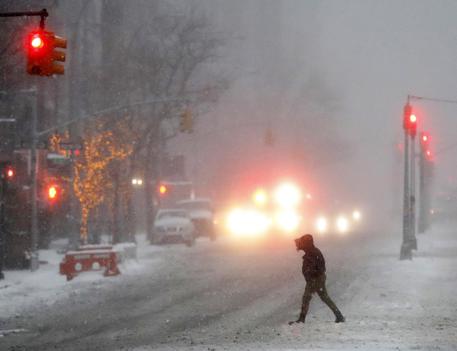A powerful storm has struck across the country, bringing snow, ice, and freezing temperatures to 25 states since yesterday. According to the National Weather Service, the severe weather will affect over 60 million people across a 1,500-mile stretch, with critical conditions expected to persist.
The Midwest is among the hardest-hit regions, with blizzard warnings issued in Kansas, Nebraska, and Missouri. Heavy snowfall has rendered roads hazardous, causing numerous accidents. Kansas City has been particularly impacted; its international airport was forced to temporarily close its runways due to ice buildup, with approximately 72% of flights canceled. Overall, more than 1,500 flights have been canceled, and an additional 800 face the same risk.
The cold wave is now moving toward the East Coast, with significant snowfalls expected from St. Louis to Washington, D.C., affecting states like Philadelphia, Maryland, and New York. Experts predict up to 10 inches of snow in various areas, with peaks of 18 inches in the Appalachian highlands. Meanwhile, North Carolina and Georgia are bracing for heavy rains and thunderstorms.
Virginia Governor Glenn Youngkin has declared a state of emergency in anticipation of the storm’s impact, while Kentucky Governor Andy Beshear has opened heated shelters across the state and highlighted the risk of power outages due to layered ice.
In Washington, D.C., Mayor Muriel Bowser has urged residents to limit travel but confirmed that this week’s scheduled events, including the inauguration ceremony for newly elected President Donald Trump and the state funeral for former President Jimmy Carter, will proceed as planned, albeit with possible logistical adjustments.
Experts warn that the storm will continue to intensify in the coming days, bringing an arctic cold wave with temperatures 10 to 25 degrees below seasonal averages, the worst in the last 10 years . Kansas City could plummet to 5°F by Tuesday, while the cold is expected to reach as far south as Texas and Florida, with wind chills close to freezing.
In addition to ice, there are risks of tornadoes and hail in Louisiana, Mississippi, and southern Arkansas, which could further worsen emergency conditions. Authorities are advising against travel and urging the public to monitor weather updates to ensure personal and collective safety.












